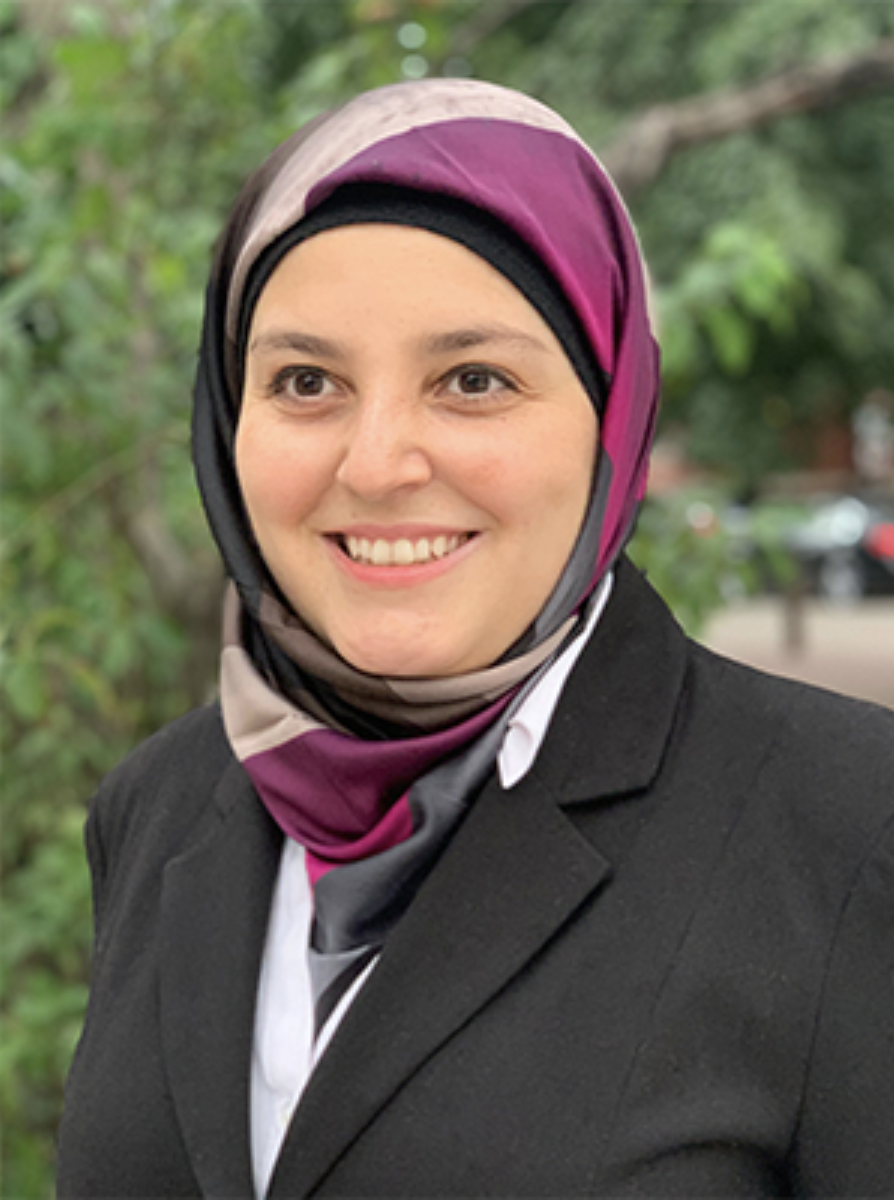Professor Mona Minkara
Professor Mona Minkara
Department of Bioengineering
Northeastern University
Abstract
Building the COMBINE Lab: Breaking Barriers as a Blind Chemist
In this talk, Mona Minkara, an assistant professor of Bioengineering at Northeastern University, shares the story behind building the Minkara Computational Modeling for BioInterface Engineering (COMBINE) Laboratory. As a blind chemist, Mona faced challenges and overcame internalized ableism to see her blindness as an asset in the lab’s work. She emphasizes the importance of combining diverse perspectives in science to solve new problems and advocates for disability inclusion in STEM. Her story challenges us to reflect on our biases and recognize the importance of creating inclusive spaces and striving for equitable opportunities for all.
Throughout her academic journey, Mona navigated the complexities of securing the necessary accommodations for her education and selecting a graduate school that offered the support she needed. Her mentors played a significant role in helping her overcome internalized ableism and see her blindness as an unseen advantage. This perspective has been a driving force in her work. Mona’s story asks us to reflect on how we can work together to break down barriers, and acknowledges there are still barriers to break – we still need to make the results of scientific research and its literature accessible to all people.
Mona Minkara
Dr. Minkara’s research uses a variety of methods from computational chemistry that she has employed throughout her academic career. While pursuing her BA in Chemistry at Wellesley College, Dr. Minkara worked with Dr. Mala Radhankrishnan, where she used computational methods to explore the binding of drugs to HIV-1 Reverse Transcriptase. After completing her BA in 2009, Dr. Minkara spent a year conducting research at Wellesley under a Howard Hughes Medical Institute Research Grant. In 2010, she began her graduate studies at the University of Florida supported by a National Science Foundation Graduate Research Fellowship. Under her co- advisors, Dr. Kenneth M. Merz Jr. and Dr. Erik Deumens, she focused on using molecular dynamics simulations to design a new inhibitor for Helicobacter pylori urease, an enzyme that helps bacteria survive in the stomach, and in 2015, she received her PhD in Chemistry. She then joined Dr. J. Ilja Siepmann’s lab as a post-doc at the University of Minnesota Twin Cities Chemical Theory Center. In this role, Dr. Minkara used Monte Carlo simulations to explore the interfacial properties of surfactants, the surface tension of water, and the miscibility gap of supercritical fluids.
Hosted by Professor Alexander Umanzor
